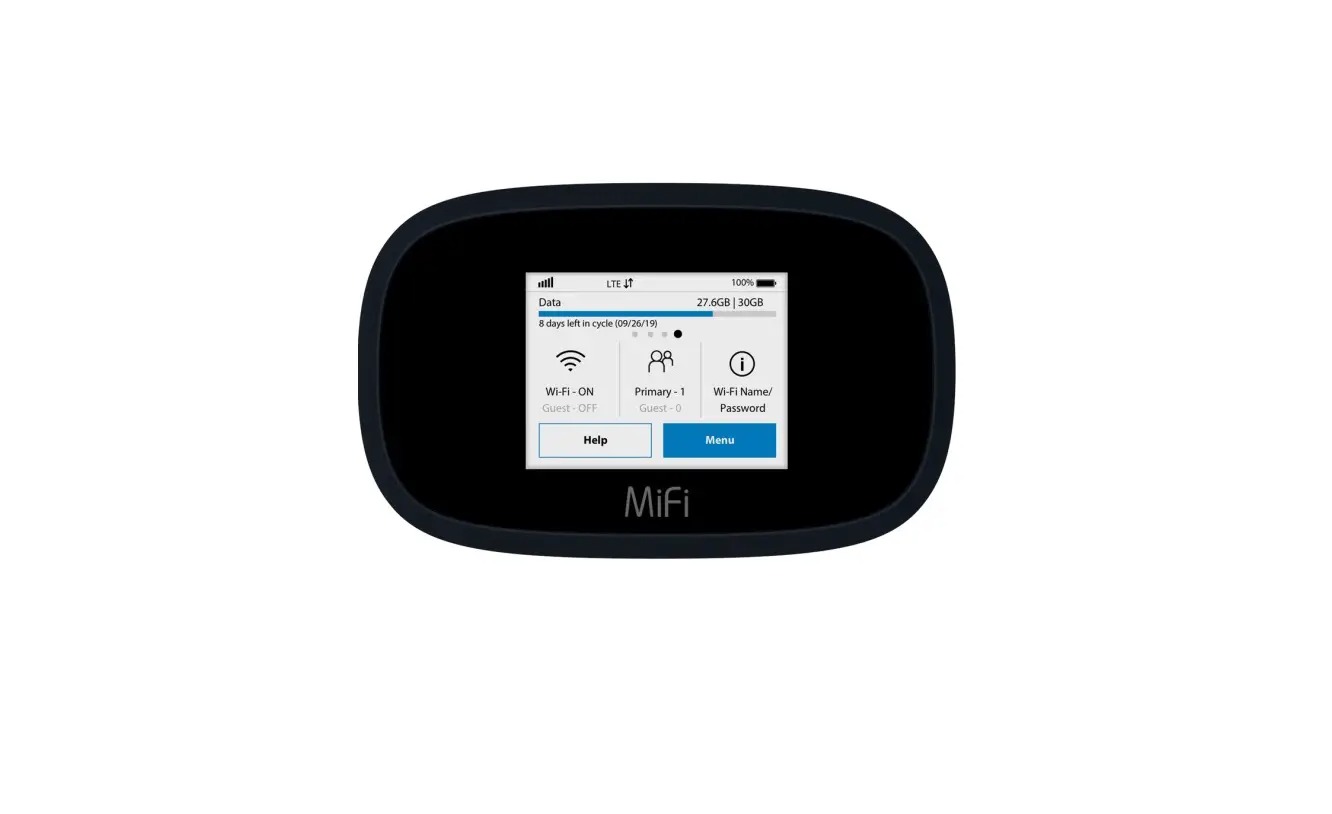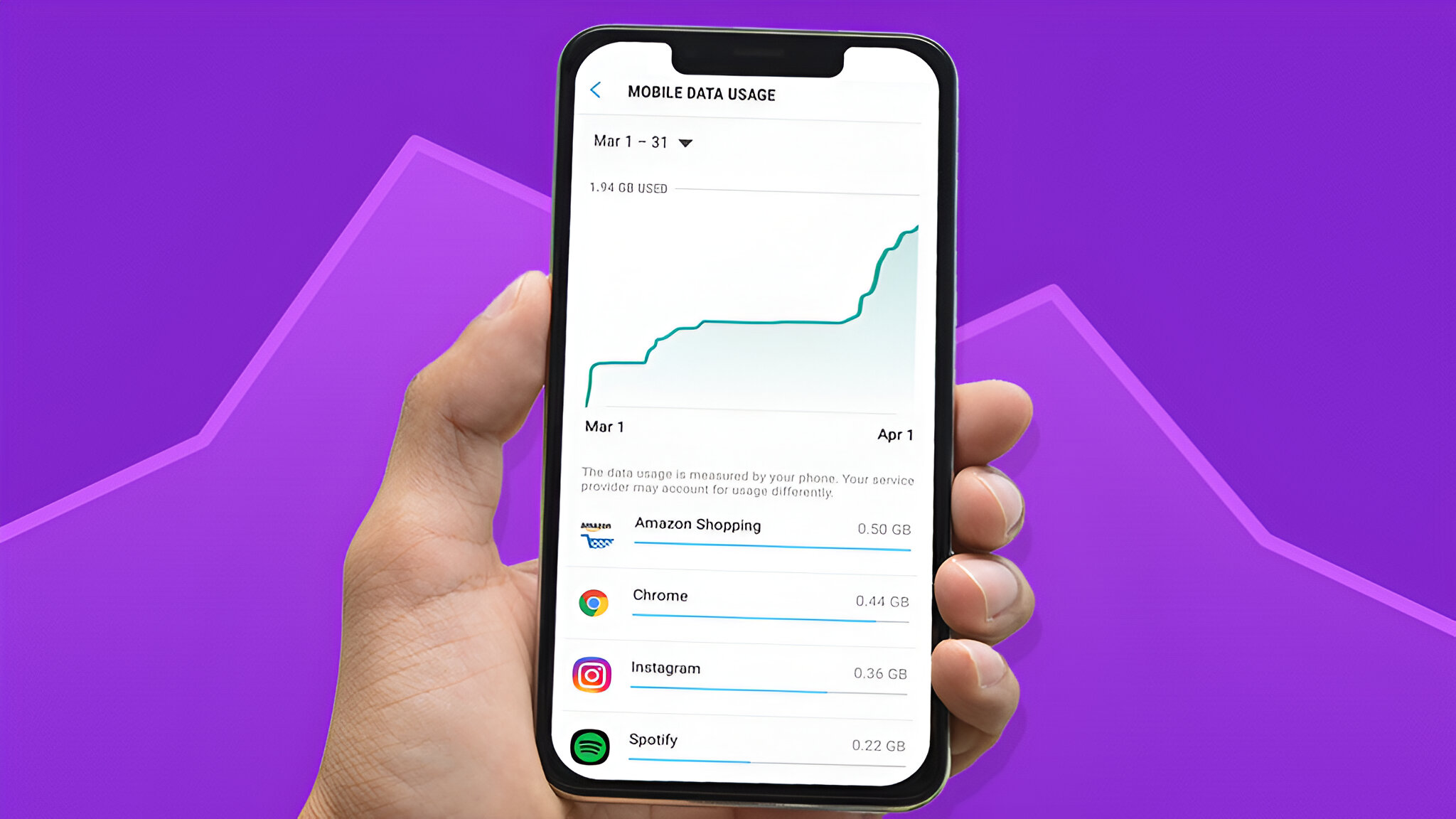Introduction
In today's digital age, mobile gaming has become a ubiquitous form of entertainment, offering endless hours of enjoyment for individuals of all ages. Whether it's conquering virtual battlefields, solving puzzles, or competing in sports simulations, the world of mobile gaming is vast and ever-evolving. However, with the increasing reliance on mobile hotspots for internet connectivity, it's crucial to understand the impact of mobile hotspot gaming data usage.
Mobile hotspots serve as lifelines for gamers who seek uninterrupted access to their favorite games while on the go. As the demand for seamless connectivity continues to surge, it's essential to delve into the intricacies of mobile hotspot gaming data usage to optimize the gaming experience. By gaining insights into the factors influencing data consumption and implementing effective strategies, gamers can make the most of their mobile hotspot connections without exceeding data limits or experiencing lags.
This article aims to unravel the complexities of mobile hotspot gaming data usage, shedding light on the factors that contribute to data consumption and providing actionable tips for optimizing data usage. Whether you're a casual gamer, a competitive enthusiast, or someone who simply enjoys gaming on the move, understanding how to manage mobile hotspot gaming data usage effectively can significantly enhance your gaming experience. So, let's embark on this journey to uncover the secrets of mobile hotspot gaming data usage and empower ourselves with the knowledge to make informed decisions for a seamless gaming experience.
Understanding Mobile Hotspot Gaming Data Usage
When it comes to mobile hotspot gaming data usage, it's essential to comprehend the dynamics that govern data consumption during gaming sessions. Mobile gaming, unlike traditional console or PC gaming, relies on internet connectivity to facilitate gameplay, updates, and interactions with other players. As a result, the data usage patterns associated with mobile gaming can significantly impact the performance of gaming experiences when using a mobile hotspot.
One of the primary contributors to data usage in mobile gaming is the constant exchange of data packets between the gaming device and the game servers. This communication is essential for real-time gameplay, as it enables the seamless transmission of player actions, environmental changes, and multiplayer interactions. Additionally, in-game audio and visual content, such as voice chat, video streams, and high-definition graphics, can substantially contribute to data consumption.
Furthermore, the prevalence of online multiplayer gaming adds another layer of complexity to mobile hotspot data usage. Engaging in multiplayer matches or cooperative gameplay requires consistent data exchange to synchronize the actions of all players involved. This synchronization process demands a steady flow of data, which can impact the overall data usage during gaming sessions.
Moreover, the proliferation of live updates, patches, and downloadable content (DLC) in modern mobile games introduces another dimension to data usage. Game developers frequently release updates to enhance gameplay, fix bugs, and introduce new content, all of which necessitate the downloading of data. These updates, often sizable in terms of data volume, contribute to the cumulative data consumption associated with mobile hotspot gaming.
It's important to note that different genres of mobile games exhibit varying data usage patterns. For instance, fast-paced action games with high-definition graphics and real-time multiplayer features tend to consume more data compared to puzzle games or strategy-based titles. Understanding the data consumption tendencies of specific game genres can aid in making informed decisions when using a mobile hotspot for gaming purposes.
In essence, comprehending mobile hotspot gaming data usage involves recognizing the multifaceted nature of data consumption within the mobile gaming ecosystem. From real-time communication and multiplayer synchronization to content updates and genre-specific variations, the intricacies of data usage in mobile gaming underscore the need for strategic data optimization measures to ensure a seamless gaming experience.
Factors Affecting Mobile Hotspot Gaming Data Usage
The data usage associated with mobile hotspot gaming is influenced by a multitude of factors that collectively shape the overall consumption patterns. Understanding these factors is crucial for optimizing data usage and maintaining a smooth gaming experience. Here are the key elements that impact mobile hotspot gaming data usage:
Game Genre and Content
Different genres of mobile games exhibit varying data consumption tendencies. Action-packed titles with high-definition graphics, immersive audio, and real-time multiplayer features often demand substantial data for seamless gameplay. On the other hand, puzzle games or strategy-based titles, which may not heavily rely on real-time communication or high-definition visuals, tend to consume comparatively less data. The complexity and richness of in-game content, including visual effects, audio quality, and interactive elements, contribute significantly to data usage.
Multiplayer Interactions
Participation in multiplayer gaming experiences, whether in competitive matches or cooperative gameplay, necessitates consistent data exchange to synchronize the actions of all players involved. The continuous communication between players, the game server, and other networked devices contributes to data consumption. Additionally, features such as voice chat, video streams, and real-time updates during multiplayer sessions can further elevate data usage.
Live Updates and Patches
Modern mobile games often receive frequent updates, patches, and downloadable content to enhance gameplay, address bugs, and introduce new features. These updates, varying in size and frequency, are essential for maintaining the relevance and integrity of the gaming experience. However, the downloading of updates and additional content via a mobile hotspot can substantially impact data usage, especially when dealing with sizable updates or extensive downloadable content.
Graphics and Visual Quality
The visual fidelity and graphical intricacies of mobile games play a pivotal role in determining data consumption. Games featuring high-definition textures, complex visual effects, and detailed environments inherently require more data to render these elements seamlessly. Furthermore, the option to adjust visual settings within games may influence data usage, as higher graphical settings often demand increased data for rendering detailed visuals.
Audio and Voice Communication
In-game audio, voice chat functionalities, and ambient sound effects contribute to data usage during gaming sessions. The quality and richness of audio elements, especially in games with immersive soundscapes and voice communication features, can impact data consumption. Real-time voice communication during multiplayer gameplay adds an additional layer of data usage, particularly if the game relies on continuous voice chat for team coordination or social interaction.
Network Latency and Stability
The stability and latency of the mobile hotspot connection can influence data usage during gaming. Unstable or high-latency connections may lead to data inefficiencies, resulting in increased data consumption as the game attempts to compensate for network inconsistencies. A stable and low-latency connection is essential for minimizing data wastage and ensuring efficient data utilization during gaming sessions.
By considering these factors and their collective impact on mobile hotspot gaming data usage, gamers can make informed decisions to optimize data consumption without compromising the quality of their gaming experiences. Implementing effective strategies to manage data usage in accordance with these factors can lead to a seamless and enjoyable gaming experience while utilizing a mobile hotspot.
Tips for Optimizing Mobile Hotspot Gaming Data Usage
-
Monitor Data Usage: Keep a close eye on your mobile hotspot data consumption by using built-in tracking tools or third-party apps. Understanding your typical data usage patterns will enable you to make informed decisions and preemptively manage your data allocation for gaming activities.
-
Choose Data-Efficient Games: Opt for mobile games that are designed to be data-efficient. Look for titles that offer engaging gameplay without excessively high data demands. Puzzle games, turn-based strategies, and offline-capable games are excellent choices for minimizing data usage while still enjoying immersive gaming experiences.
-
Adjust Game Settings: Many mobile games allow players to adjust visual and audio settings to suit their preferences. Lowering graphical settings, disabling high-definition textures, and reducing audio quality can significantly reduce data consumption without compromising the core gameplay experience.
-
Schedule Updates and Downloads: Take control of game updates and additional content downloads by scheduling them during off-peak hours or when connected to a Wi-Fi network. This approach ensures that substantial data transfers occur when your mobile hotspot usage is less critical, thereby minimizing the impact on your data allocation.
-
Limit Multiplayer Features: In games with optional multiplayer components, consider limiting your participation in data-intensive multiplayer activities when using a mobile hotspot. This may involve refraining from voice chat, reducing the frequency of multiplayer matches, or opting for single-player modes to conserve data.
-
Utilize Offline Modes: Explore games that offer offline modes or single-player campaigns that do not rely on constant internet connectivity. By engaging in offline gameplay when using a mobile hotspot, you can enjoy uninterrupted gaming experiences while mitigating data usage related to real-time online interactions.
-
Optimize Network Stability: Position your mobile hotspot device in an optimal location to enhance network stability and minimize latency. By reducing network fluctuations and ensuring a stable connection, you can promote efficient data utilization during gaming sessions, ultimately optimizing your data usage.
-
Educate Yourself on Game Data Usage: Research the data consumption patterns of specific games and understand the impact of in-game activities on data usage. By familiarizing yourself with the data requirements of your favorite games, you can make conscious choices to optimize data usage without sacrificing gaming quality.
-
Consider Alternative Connectivity: Explore alternative connectivity options, such as public Wi-Fi networks or dedicated gaming hotspots, to offload data usage from your primary mobile hotspot. Leveraging Wi-Fi networks with generous data allowances can alleviate the burden on your mobile hotspot data allocation.
-
Communicate with Fellow Gamers: Engage with the gaming community to exchange tips and strategies for optimizing data usage during mobile hotspot gaming. By sharing insights and experiences, you can discover innovative approaches to minimize data consumption while maintaining an immersive gaming environment.
By implementing these proactive measures and staying mindful of your data usage, you can optimize mobile hotspot gaming data usage without compromising your gaming experiences. Embracing data-efficient gaming practices empowers you to make the most of your mobile hotspot connectivity while immersing yourself in captivating gaming adventures.
Conclusion
In conclusion, the realm of mobile hotspot gaming data usage encompasses a diverse array of factors that collectively influence the consumption of data during gaming sessions. Understanding the intricate interplay between game content, multiplayer interactions, updates, graphics, audio, network stability, and individual gaming preferences is pivotal for optimizing data usage without compromising the quality of the gaming experience.
By delving into the nuances of mobile hotspot gaming data usage, gamers can proactively manage their data consumption through informed decision-making and strategic adjustments. Monitoring data usage, choosing data-efficient games, and optimizing game settings are foundational steps in promoting efficient data utilization. Additionally, scheduling updates, limiting multiplayer features, and embracing offline modes present practical avenues for minimizing data usage while engaging in captivating gaming experiences.
The convergence of technology and entertainment continues to redefine the landscape of gaming, with mobile hotspots serving as indispensable conduits for on-the-go gaming experiences. As the demand for seamless connectivity intensifies, the optimization of mobile hotspot gaming data usage emerges as a crucial endeavor, enabling gamers to relish immersive gameplay without undue data constraints.
Ultimately, by adhering to data-efficient gaming practices, leveraging alternative connectivity options where feasible, and staying attuned to evolving gaming trends, gamers can navigate the intricacies of mobile hotspot gaming data usage with confidence. Empowered with insights into data optimization strategies and armed with a nuanced understanding of data consumption dynamics, individuals can savor uninterrupted gaming escapades while maximizing the utility of their mobile hotspot connections.
In essence, the journey to optimize mobile hotspot gaming data usage is a testament to the symbiotic relationship between technological innovation and user-driven adaptability. By embracing data-conscious gaming habits and leveraging the wealth of resources available, gamers can embark on a seamless and data-optimized gaming odyssey, where connectivity and consumption harmoniously converge to enrich the gaming landscape.

























